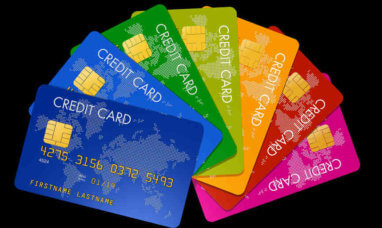A balance transfer credit card is meant to help you pay off credit card debt that has high interest. If you’ve been considering a balance transfer card, it’s essential to know when and if to cancel the card.
For instance, does your credit score qualify for another offer? If so, is there an annual fee associated with your current account? What are some other benefits or drawbacks of keeping your new account open versus closing it after paying it off? These are all questions that you’ll need to answer before making a final decision. Hopefully, this post will help clarify whether or not you should cancel a balance transfer card.
What Happens After You Pay Off A Balance Transfer?
The most common case where people wonder if they should cancel their balance transfer credit card is when they’ve paid off their debt. After paying off your balance transfer, the first thing that should happen is you congratulate yourself for making it out of debt so quickly. Note that your balance transfer credit card will not automatically close after it has fulfilled its purpose. If you do not close the account yourself, it will remain as a regular credit card, one that will eventually start charging APR when the promotional period is over.
Before you consider canceling, make sure that you no longer use the card for convenience shopping or emergencies. You cancel your credit card only after you have paid off your balance so that your score doesn’t go down due to not having any open accounts.
[h2lineShould You Cancel Your Balance Transfer Card?[/h2line]
When deciding whether or not to cancel your balance transfer credit card, you should consider each instance separately. For example, if your interest rate has increased on the new card but is still considerably lower than what you were paying with your old card, there may be no reason to close the account. However, if you can qualify for another low-interest offer, you may want to cancel your old card.
When thinking about whether or not to keep your balance transfer credit card open, the main thing you should think about is if it has an annual fee. If there are no added fees associated with keeping your balance transfer credit card, you can go ahead and close it once completed.
It might also be worth it to wait before closing to give time to FICO and creditors to update their reports. Once you have paid off your balance transfer, it would be advisable to wait at least three months before canceling the credit card. This is because creditors update their reports every quarter, so these three months may give you time to clean up your credit report and score before closing the account.
You’ll want to aim for a minimum of 761 FICO credit score, but a 783 FICO credit score will probably get you the best rates for home/personal loans.
Credit Score Impact Of Closing An Account
One of the most common questions we hear is: Does a balance transfer hurt my credit score? This is a common fear, especially if you are closing the account because it did not help your score. However, did you know that closing an account does not necessarily lower your credit score? A balance transfer card might be hurting your credit score – through what’s called utilization ratio.
The utilization ratio simply means how much of your available credit you are utilizing. While closing an account does not directly impact this, it can be viewed as a red flag since your available credit would drop.
You have paid off the balance transfer only after you close or do anything with your balance transfer credit card. If there is no annual fee associated with the card, go ahead and cancel it once completed so that your score doesn’t go down due to not having any open accounts.
Credit history is another factor to consider when deciding if you should cancel a balance transfer credit card. For example, you will want to avoid losing a credit card account that has been open for a long time because this can harm your credit score.
Lost Rewards Opportunities
If you’re wondering whether or not to cancel your balance transfer credit card, you should also consider the value of any rewards points or cashback that you may be earning. If they are payments you use regularly, it might make sense not to close the account if you lose these benefits. However, it is important to emphasize that you are closing your account because it has fulfilled its monetary purpose. You should consider canceling your credit card only after you have paid off your balance so that your score doesn’t go down due to not having any open accounts.
Which Cards Offer More Than Just Intro APR Balance Transfers?
If you’re currently browsing for the best offer among balance transfer credit cards, you’ll need to dig deeper than just looking at the intro APR period. A good number of balances require you to make an initial transfer on the first day, after which there is no grace period on new purchases (meaning all your payments will be due in full by the next billing cycle). If you only plan to use this card for a balance transfer, it’s probably best to look elsewhere.
Consider the Bank of America Customized Cash Rewards credit card. This card offers bonus cash back on categories you choose, as well as a decent intro APR period of 0% for 12 billing cycles for balance transfers and purchases. The card also comes with 3% cashback in any category you choose:
-
-
- Gas
- Online Shopping
- Dining
- Travel
- Drugstores
- Home Improvement
- Furniture
-
What If I Can’t Pay Off My Credit Card?
In some cases, you may not be able to pay off your balance transfer credit card before the intro APR expires. This can happen if you use more of the available credit on the account, causing the balance to increase faster than you expected. If this is your situation, then there are a few things that you should do before canceling your card:
-
-
- Ask your credit card issuer for a lower interest rate
- Transfer the balance on your new card to another 0% APR card so you can pay it off over time while avoiding fees
- If possible, find other ways to reduce the number of your monthly payments, such as making larger than minimum payments or asking for increased paychecks
-
If you can’t make payments, your credit card issuer might allow you to skip a payment without penalty. However, after doing so, the next month’s payment will likely be much higher – or they may even charge interest on the entire balance if it is due. This means that your overall borrowing cost will increase, which could result in you owing more than the original balance.
Bottom Line
Canceling a balance transfer credit card can be beneficial in some situations. However, it’s crucial to consider all the factors and make sure that you take the time to do your research before making this decision. Hopefully, after reading this article, you are better prepared for the right time to cancel a balance transfer credit card.
Featured Image: Twenty20








